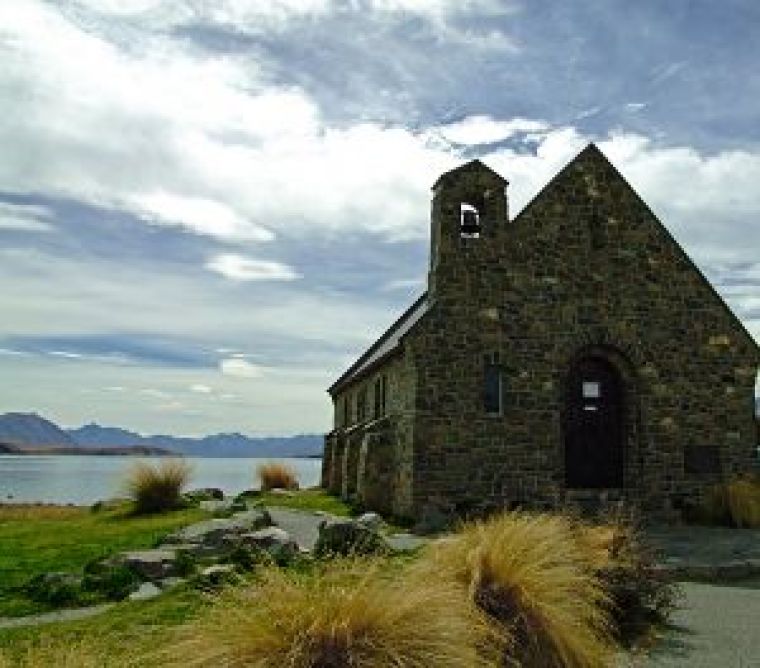
According to details of the 2013 census released recently, Christians now only make up approximately 47% of the four million-strong population who gave details of their religion (1.93 million people), dropping from 56% in 2006 (2.03 million).
Within the statistics, the most troubling data set is that of the Anglicans. The numbers show them as having lost almost 100,000 members in the space of six years, down from 0.55 million in 2006 to 0.46 million in 2013.
Anglicans have attributed this in large part to age, but have admitted that does not tell the full story.
"Last census there were 41,000 Anglicans over the age of 80, only slightly less than those under 10," said Peter Lineham, Professor of History at Massey University, according to AnglicanLink.com.
"But this still means that many Anglicans in 2006 have changed their affiliation since then – probably to 'none'."
This substantial decrease for Anglicans means that Catholics have become the single largest Christian denomination in New Zealand for the first time, but their numbers are down too (0.51 million in 2006 to 0.49 million in 2013).
The news wasn't all bad for Christian denominations though, with smaller denominations reporting limited but significant growth. Evangelicals have grown from approximately 13,800 followers in 2006 to 15,400 in 2013. Adventists were numbering approximately 16,200, and are now 17,100.
Crucially, those who described themselves simply as 'Christian' rather than any specific denomination, have increased from 0.18 million in 2006 to 0.22 million in 2013. This group may explain some percentage of the drop in other Christian groups, with Kiwi Anglican clergyman Geoff Robson blogging to the effect that he and his family label themselves as "Christian" without any further definition.
Those of an atheist or 'no religion' persuasion have increased substantially, now making up close to 40% of the population (1.63 million in 2013, compared to 1.29 million in 2006). This makes New Zealand one of the most secular nations in the world.
The results have prompted questions as to the aptness of national celebrations of Christmas and the place of Church in the national school system. Professor Paul Morris of Victoria University, a specialist in religious studies, said in the Sunday Star Times that New Zealand found itself in "new territory", with Christianity losing its central position. "For the first time since 1901, Christians are not the clear majority."
However, the accuracy of the census as a means of gauging religiosity across the country has been in question for some time. A survey conducted in 1985 by the Ministry for Culture and Heritage found that around one-quarter of those answering 'no religion' may in fact believe in a God. The International Social Survey Programme conducted in New Zealand in 2008, received responses from around 1000 adults across the country. They found that 72% believed in a god, a substantial jump from the approximately 58% that described themselves as religious in the 2006 census. Anglican Bishop of Wellington Justin Duckworth suggests many people say they are spiritual, but become more hesitant when asked about organised religion.
Other religions in New Zealand have been growing steadily. Hindus have jumped from 64,300 people in 2006 to 90,000 in 2013. Muslims counted 36,000 among their number in 2006, but that has now increased to 40,000 in 2013. Although this growth is substantial, it is mostly linked to immigration which has slowed in recent years.
The most stable group seems to be Jews, who have reported an increase of only nine members between 2006 and 2013.
The size of these numbers does belie a longer-term situation in the New Zealand Christian community. Data gathered by the Christian theologian and academic blogger Mike Crudge suggests that New Zealand has been in decline in terms of Church attendance since 1890.
Many have predicted the current situation. According to one report by the American Physical Society, if current trends continue, not only will those of no religion outnumber Christians by the next census, but it could go extinct entirely.
Carl Walrond, writing in the Encyclopaedia of New Zealand, states that with current trends, non-religious people will outnumber all religious people regardless of affiliation by 2026.
The Anglican Church in Aotearoa, New Zealand and Polynesia was contacted but was unavailable for comment.